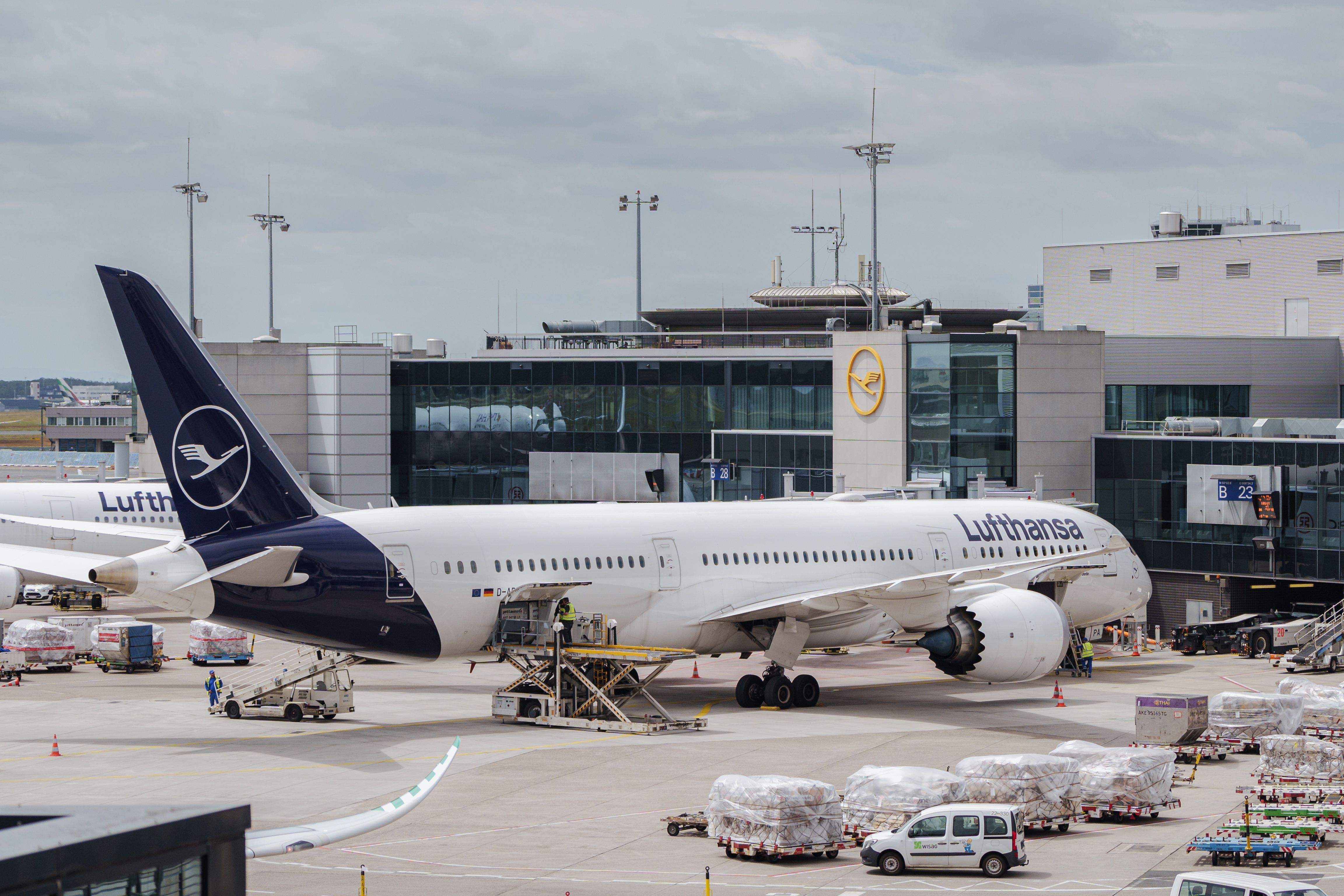Germany’s Lufthansa reportedly plans to register its new Boeing 787 Dreamliners in Switzerland. The move comes more than two weeks after the United States imposed 20% tariffs on goods from the European Union (EU). In response, the EU introduced countermeasures against the US.
The escalating trade war has alarmed the aviation industry, which warned that it could increase costs and delay aircraft deliveries. Switzerland is not a member of the 27-country bloc and is currently subject to 31% US tariffs, one of the highest among European countries. Despite the high tariffs, the Swiss government has not imposed any retaliatory tariffs on US goods, keeping imports to the country from becoming more expensive.

For this reason, Lufthansa is potentially considering registering its new widebodies in Switzerland, according to a report by aeroTELEGRAPH . Trade War To Drive Up Costs The EU’s countermeasures against the United States could significantly increase the price of new aircraft, as US imports to the EU would become more expensive. According to ch-aviation data, Lufthansa is currently awaiting the delivery of 34 Boeing 787-9 Dreamliner widebodies.
Of the total order, Boeing has 15 aircraft ready for delivery, but deliveries have been delayed due to the FAA’s pending certification of the new Allegris seats. With the trade dispute escalating, Lufthansa is now eager to receive its new aircraft as quickly as possible. The German flag carrier had already planned to deploy its new Boeing 787-9s on medium-haul routes this summer.
To avoid EU tariffs, Lufthansa is exploring alternative options for taking delivery of the aircraft, and according to aeroTELEGRAPH, Switzerland could be one of them. The report suggests that Lufthansa could significantly cut costs by initially registering the Boeing 787s in Switzerland before moving them to Germany. In addition to the Boeing 787 Dreamliners, the airline has 21 Boeing 777Xs on order from the American aircraft manufacturer.
These widebody aircraft, which are yet to be certified, could also face tariffs in the future if the current measures remain in place. Aircraft Deliveries In Limbo The ongoing trade war initiated by the Trump administration could delay many aircraft deliveries around the world, potentially creating opportunities for other manufacturers like Airbus or COMAC, and affecting Boeing sales. Earlier this month, US President Donald Trump increased baseline tariffs on Chinese imports to 145%.
In response, China retaliated with a 125% tariff on US goods. In recent news, the Chinese government told its airlines not to take Boeing deliveries amidst its trade war with the US. The Bloomberg report added that the order to halt aircraft deliveries came after China retaliated with its own heightened tariffs on US-made goods.
Last week, the order to stop deliveries followed the return of a brand-new Boeing 737 MAX 8 aircraft, destined for Xiamen Air, back to the United States. The state-run Chinese news agency, Yicai Global , reported that China's retaliatory tariffs will "significantly raise" the cost of the Boeing aircraft for Chinese airlines. Indeed, for a Chinese operator, taking delivery of a Boeing jet under these conditions could be financially devastating, especially considering that a new 737 MAX is valued at approximately $55 million, as per Reuters .
The news comes shortly after the Chinese government ordered its carriers not to take delivery of Boeing aircraft. Boeing Is More Vulnerable Than Airbus If tariffs are here to stay, then it is expected that Boeing will likely lose more market share. In March 2025, the CEO of the giant aircraft lessor company, AerCap, stated that Boeing stands more to lose than its European rival, Airbus.
In April, Leeham News also stated that Boeing is at greater risk than its European counterpart from a global tariff war. It noted that the United States tariffs "threaten retaliatory tariffs against Boeing at a far greater level than Airbus faces." Leeham pointed out that even Boeing's domestic deliveries to the US will potentially be hit with tariffs, as many of the components are foreign-sourced parts.
The publication further suggests that the American plane maker potentially has three times more aircraft subject to retaliatory tariffs than Airbus . Meanwhile, Yicai Global reported that the then-34% Chinese tariff hike on US goods would likely cause Chinese airlines to seek alternative suppliers (like Airbus) or delay purchases to mitigate the impact..
Technology

Avoiding US Tariffs On The EU: Lufthansa Eyes Swiss Registration For New Boeing 787s

The move comes more than two weeks after the United States imposed 20% tariffs on goods from the European Union (EU).















